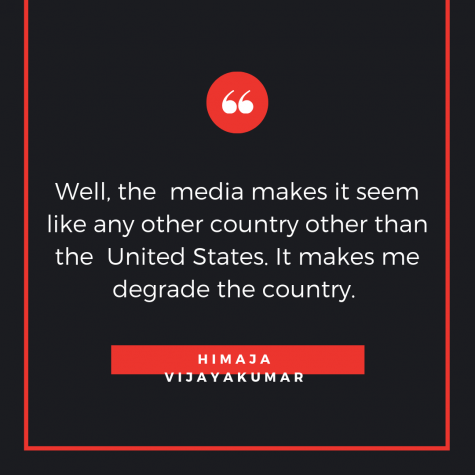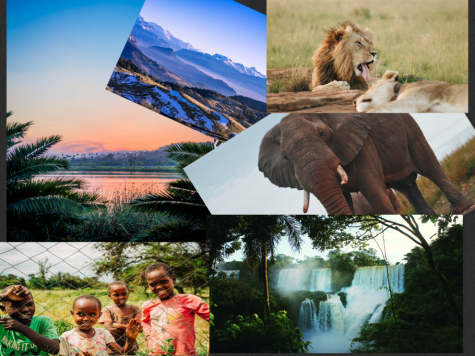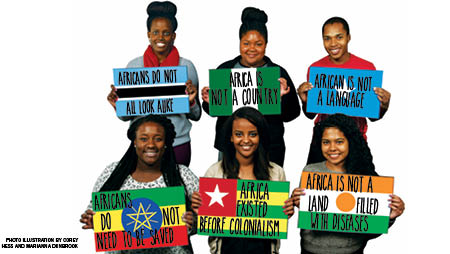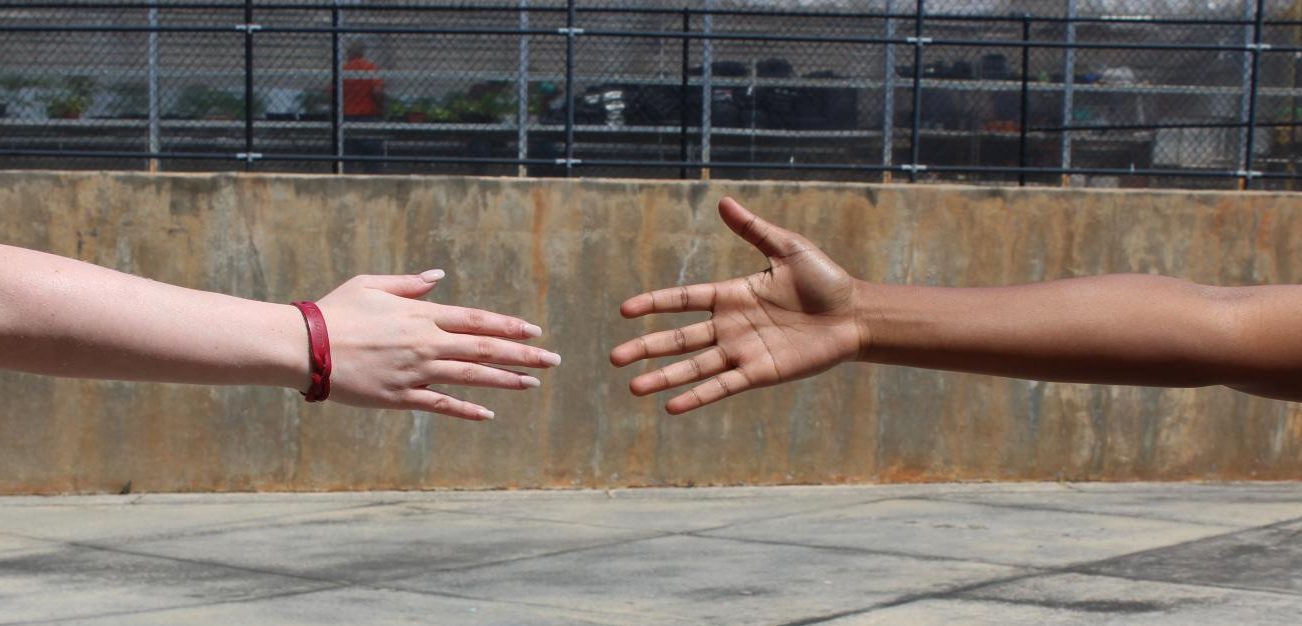Dear Non-Africans
May 7, 2019
“I see Kenya, a mighty chihuahua,” as the tune starts—I’m sure we all sing along to this The Lion King song when it comes on in the comfort of our own homes or in the movie theatre. But how much is known about this vast continent about which so many people sing so passionately?
About two years ago, I moved back to the United States from Kenya, and I can personally attest to the fact that most Americans have a negative perception of Africa and its many inhabitants.
In 2015, Snapchat Live featured a story from Nairobi, Kenya. Comments under the stream depicted an impertinent lack of knowledge and the public’s skewed perspective on Africa. One specific tweet read, “Nairobi on Snapchat? Wtf! I want my $2 a month back if they got iPhones.” “Well, [the media] makes it seem like any other country other than the U.S. It makes me degrade the country,” senior Himaja Vijayakumar said.

Therein lies a part of the problem; people still refer to Africa as a country. Within Africa, the second largest continent in the world, lie 54 wildly diverse countries which harbor over a billion people who speak between 1500-2000 languages—each with different cultures, hence the different dialects. Grouping the entire content into a singular entity highlights the world’s ignorance of its diversity.
“Whenever someone mentions Africa around me, I think of the different countries,” senior Zion Fitch said.
Despite the fact that poverty and disease ravage Africa, its beauty speaks for itself.
From the beautiful Victoria Falls in Zambia to the amazing wildebeest migrations in Tanzania, Africa remains a sight to behold. The gigantic mangrove roots sticking out from the light brown beach sand, coconut trees hanging low from the heavy, juicy coconuts they supply, and palm trees hovering their dark green leaves over the turquoise ocean waters. In addition to these intriguing facts, Africa, motherland to the big five, draws numerous amounts of tourists to these countries.

Revoking the stereotypes about the motherland, these images provide a glimpse of what Africa entails with different sites to see as Africa upholds its beauty. Wildlife, sandy beaches, and the beautiful smiles of its people exist, but do not make their way to the general media. Instead, the world views it as a continent devoid of human touch, with minimum chances of ever departing from the isolation.
This alluring land brought forth some of the most influential people today: Nelson Mandela, who fought tooth and nail to end apartheid in his country earning him the first black president seat in South Africa; Kofi Annan, former United Nations secretary and Ghanaian diplomat who won the Nobel Peace Prize in 2001;and Lupita Nyong’o, a world-renowned actress who recently won an Oscar due to her undeniable talent in 12 Years a Slave. In the environmental protectionist sector Wangari Maathai, a fierce Kenyan warrior known for her utmost environmental care holds her Nobel Peace prize in 2004.
Africa also engenders plenty of competitive athletes who compete in different Olympic races bringing back gold, silver and bronze medals to their home countries. From the likes of Victor Wanyama, a Kenyan who plays at the Tottenham Hotspur (a professional football team in London) as a midfielder, to Caster Semenya, an amazing South African Olympic gold medalist middle distance runner, Africans continue to prosper on foreign grounds.
In addition, Africa’s culture seems to match up to the rest of humanity with its music and dressing being embraced by all. Sauti Sol, a Kenyan, all-boy band dominating Africa, caught the rest of the world by surprise with their great and distinct talent in music by being nominated and winning different awards. Similarly, afrobeat artists like Davido’s songs have crossed the ocean and been accepted worldwide.
As the media depicts a land devoid of civilization with no signs of breaking loose from its chains– stereotypes and ignorance blur Americans’ sight of a beautiful Africa.
Women work tooth and nail to single-handedly raise their children. But the media will only show lactating mothers lying nearly lifeless with their malnourished children. Countries continue to develop through the years with better education systems and better job opportunities, hence a growing economy with reconstructed roads and growing infrastructure.

Portraying the diversity among peoples of the African continent, and representing far less than the more than fifty-five countries, these optimistic faces of Africa hold top position when it comes to diversity due to the different cultures and ethnic backgrounds. This adds on to the beauty of the motherland and more often than not, increases the tourist numbers by huge percentages. However, the signs the ladies are holding up include some of the many misconceptions the world has about Africa. Despite all the beauty that speaks for itself, the world overrides it and manages to diminish the land.
Education engenders enlightenment and different perspectives about Africa. In a recent poll conducted via an informal Instagram with the question, ‘What is the first thing that comes in mind when someone says, Africa?’ Fifty people responded with heartwarming answers. They talked about different countries, cultures, and food.
“Whenever someone mentions Africa around me, I think of the different countries, cultures and beautiful people. My people,” senior Zion Fitch said.
Africa, homeland to diverse, indigenous peoples, continues to rise above their circumstances on their road to greatness.
“The first step towards success is taken when you refuse to be a captive of the environment in which you first find yourself,” analyst, strategist, and communicator operating at the intersection of technology, policy, markets, and society Mark Caine said. We should use this as a wakeup call and work on eliminating these vivid misconceptions on a beautiful continent such as Africa.
